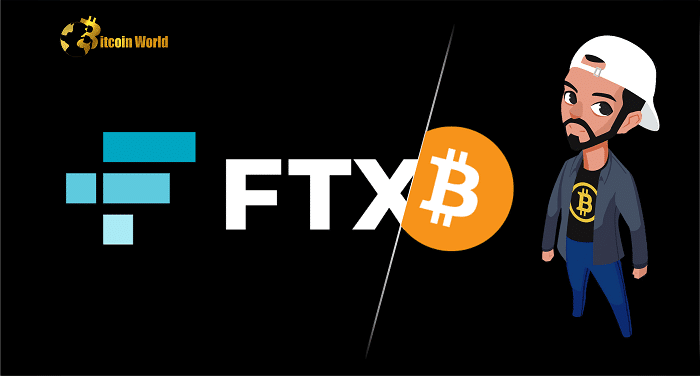The cryptocurrency world was rocked by the dramatic collapse of FTX, shaking investor confidence and raising questions about the future of digital assets. Yet, amidst the turmoil, two prominent figures, El Salvador’s President Nayib Bukele and Binance CEO Changpeng “CZ” Zhao, remain steadfast in their belief in Bitcoin. They see the FTX debacle not as a failure of cryptocurrency itself, but as a stark reminder of the fundamental differences between decentralized systems like Bitcoin and centralized entities.
Why Does the FTX Collapse Reinforce Bitcoin’s Value Proposition?
President Bukele, a vocal advocate for Bitcoin adoption in El Salvador, didn’t shy away from addressing the FTX situation. He took to Twitter to highlight a crucial distinction. Despite facing criticism for his earlier Bitcoin investments during market downturns, Bukele used the FTX implosion to underscore why Bitcoin operates on a fundamentally different level.
FTX is the opposite of Bitcoin.
With Bitcoin, you are in full control of your funds.
With FTX, you weren’t.
We’ve been saying this for years. pic.twitter.com/tIeS4fNw9A
— Nayib Bukele (@nayibbukele) November 14, 2022
Bukele succinctly captured the essence of Bitcoin’s design, stating, “FTX is the opposite of Bitcoin.” He emphasized that the Bitcoin protocol, as outlined in its foundational white paper, enables a trustless financial system. This is achieved through an immutable, peer-to-peer network, eliminating the need to rely on intermediaries like FTX.

Centralization vs. Decentralization: The Core Difference
The FTX saga highlights the inherent risks associated with centralized cryptocurrency exchanges. Here’s a breakdown of the key differences:
- Control of Funds: With Bitcoin, users hold their private keys, giving them complete control over their funds. In contrast, users on centralized exchanges like FTX entrust their funds to the platform.
- Transparency: Bitcoin transactions are recorded on a public, immutable blockchain, offering a high degree of transparency. Centralized exchanges operate with less transparency regarding their internal operations and fund management.
- Trust: Bitcoin’s trustless nature eliminates the need to rely on the integrity of a central authority. Centralized exchanges require users to trust their management and security protocols.
- Single Point of Failure: Centralized entities are susceptible to single points of failure, as demonstrated by the FTX collapse. Bitcoin’s decentralized network is inherently more resilient to such failures.
Pointing Fingers, Reinforcing Principles: Bukele’s Stance
Bukele didn’t mince words when calling out individuals like former FTX CEO Sam Bankman-Fried, drawing parallels to notorious financial fraudsters like Bernie Madoff. He argued that Bitcoin’s underlying protocol inherently prevents such fraudulent activities. The fixed supply and transparent ledger make it difficult for bad actors to manipulate the system in the same way they can with traditional financial instruments or centralized cryptocurrency platforms.
His concluding remark, “Some understand it, some not yet. We’re still early,” resonated with the crypto community. It acknowledged that while the technology is still relatively new, its core principles of decentralization and scarcity offer a compelling alternative to traditional finance.
The Scarcity Factor: Why Bitcoin’s Limited Supply Matters
Bukele also emphasized Bitcoin’s fixed supply of 21 million coins as a crucial differentiating factor. This scarcity, a fundamental aspect of Bitcoin’s design, makes it a truly unique asset in a world where fiat currencies can be subject to inflationary pressures. This limited supply is often cited as a key driver of Bitcoin’s long-term value proposition.
Looking Ahead: Financial Freedom Through Decentralization
The FTX collapse, while a setback for the broader crypto market, has inadvertently strengthened the arguments for Bitcoin’s decentralized nature. Bukele and CZ, by reiterating their support and highlighting the fundamental differences between Bitcoin and centralized exchanges, are reinforcing the vision of financial freedom that underpins the cryptocurrency movement. Their continued advocacy serves as a reminder that the promise of blockchain technology extends beyond speculative trading and offers a potential pathway towards a more transparent and equitable financial system.
Key Takeaways:
- The FTX collapse underscores the risks associated with centralized cryptocurrency exchanges.
- Bitcoin’s decentralized nature offers greater control, transparency, and resilience compared to centralized platforms.
- The fixed supply of Bitcoin (21 million coins) contributes to its scarcity and potential long-term value.
- Bukele and CZ remain optimistic about Bitcoin’s future, emphasizing its potential for financial freedom.
- Understanding the difference between decentralized cryptocurrencies like Bitcoin and centralized entities is crucial for navigating the crypto landscape.
Actionable Insight:
The FTX situation serves as a crucial reminder to prioritize self-custody of your cryptocurrency. Consider using hardware wallets or other secure methods to hold your private keys, giving you full control over your digital assets and reducing your reliance on centralized intermediaries.
In Conclusion:
The FTX storm has undoubtedly left its mark, but for proponents like Bukele and CZ, it has also served as a stark illustration of Bitcoin’s inherent strengths. Their unwavering belief in the power of decentralization and the potential for financial freedom offers a beacon of hope amidst the crypto winter. As the industry matures, the lessons learned from the FTX debacle will likely lead to a greater emphasis on transparency, security, and the fundamental principles that underpin the promise of blockchain technology.
Disclaimer: The information provided is not trading advice, Bitcoinworld.co.in holds no liability for any investments made based on the information provided on this page. We strongly recommend independent research and/or consultation with a qualified professional before making any investment decisions.



